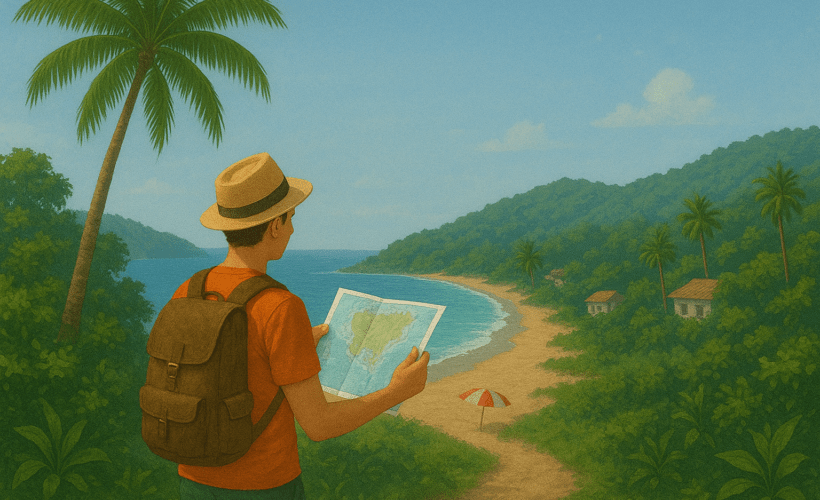
On World Tourism Day, the call grows louder: protect heritage, manage growth, and put sustainability at the heart of tourism
World Tourism Day is often framed as a celebration, but in Goa, it also arrives as a reality check. Tourism has been the state’s economic backbone and global calling card for decades, yet the very success that built its reputation now threatens to erode it. Stakeholders across the industry, from hoteliers and small entrepreneurs to cultural voices and policy makers agree that Goa’s tourism model is at a tipping point. The concerns are strikingly consistent. Overcrowding has left a handful of areas bursting at the seams, putting immense strain on infrastructure and residents alike. The unchecked spread of garbage, sewage, and haphazard construction has fueled resentment in communities and tarnished visitor experience.
Many argue that what is being lost in the rush for numbers is the very essence of Goa, its slower rhythms, its layered culture, its sense of belonging. Without careful course correction, the fear is that short-term gains could leave long-term scars.
But there is also a collective recognition that change is possible. Diversifying tourism beyond the obvious hotspots, investing in cleaner systems and greener practices, and strengthening heritage protection are not abstract goals, they are urgent imperatives. Equally critical is the idea of responsibility: tourism cannot remain a transaction between visitors and businesses alone. Communities must be partners in decision-making, and visitors must recognize that their footprint matters.
This World Tourism Day, the conversations around Goa converge on one essential truth: the future of tourism here depends not on how many come, but on how well the destination is cared for. Growth without responsibility will be self-defeating. Sustainability, accountability, and respect, for people, place, and culture, are the only guarantees that Goa will remain not just a destination, but a living experience worth returning to. World Tourism Day is not just about celebrating travel and large footfalls. It is about asking, “What are we leaving behind for those who call Goa home?”
Strengthening Goa’s Tourism and Connectivity one flight at a time
“FLY91’s partnership with Goa Tourism goes beyond ensuring air connectivity; it strengthens the state’s efforts to remain a year-round destination. Through a strategic MoU and close coordination with the Travel and Tourism Association of Goa (TTAG), we have jointly promoted Goa at trade shows in cities like Jalgaon and hosted TTAG delegations to explore opportunities in tourism promotion.
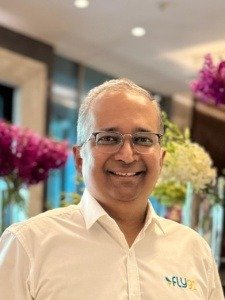
Managing Director and Chief Executive Officer, FLY91
Our collaborations extend to trade associations, local businesses, and entrepreneurs. We have introduced joint promotions, special monsoon fares aligned with Tourism Minister Rohan Khaunte’s a monsoon destination, and campaigns that drive off-season travel. Supporting local enterprise is central to our model; from partnerships with the Business Goa Awards to hiring talent from within the state.
Sustainability and technology shape our operations. Our ATR 72-600 aircraft is the most fuel-efficient in its category, while initiatives like 19 KB WhatsApp and email boarding passes, a fully paperless office, and digital-first processes ensure efficiency and reduced resource use. For passengers, this translates into seamless journeys with quick bookings, auto check-in, and frictionless boarding.
On board, we add a regional touch with Konkan-inspired refreshments like Aam Panha Surprise and Kokum Magic, Amar Chitra Katha comics, and announcements in regional languages. Flexibility with baggage, UPI payments in-flight, and periodic discounts enhance affordability and convenience.
Operational excellence remains a core priority. By working closely with airport authorities and ground partners, we maintain punctuality, smooth baggage handling, and efficient turnaround times; ensuring Goa stays reliably connected.
At FLY91, we are committed to blending sustainability, innovation, and cultural warmth to create memorable journeys while reinforcing Goa’s position as one of India’s most vibrant travel destinations.”
Redefining Luxury with Sustainability and Authenticity
“As hoteliers, we carry the dual responsibility of creating exceptional guest experiences while safeguarding the environment that makes destinations like Goa so special. At Heritage Village Resort & Spa, we see sustainability not as a compromise but as an enhancement to luxury. For instance, our energy and water management practices – whether it is wastewater recycling, energy conservation, or proposed solar heating for electricity and water – allow us to significantly reduce our footprint without diminishing guest comfort. We have eliminated single-use plastics, introduced eco-friendly guest amenities, and adopted environmentally friendly laundry practices to further strengthen our commitment. In fact, today’s discerning travellers, especially our high-end clientele, actively appreciate when their stay contributes to responsible tourism. By blending thoughtful design, technology, and community-driven practices, we ensure that sustainability and luxury coexist seamlessly – offering guests not just indulgence, but also a sense of purpose in their travel.
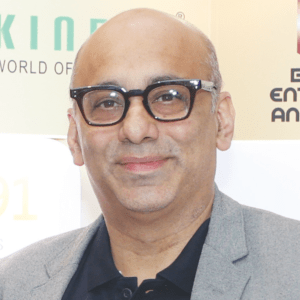
Director and Vice President of The Heritage Village Resort & Spa, Goa and Bonita
At Heritage Village Resort & Spa, we believe true luxury lies in authenticity. Our guests increasingly seek experiences that connect them to Goa’s cultural soul, and we have made it a priority to weave this into every aspect of their journey. From curated dining that celebrates Portuguese-Goan cuisine, to immersive excursions such as traditional bread-making in Majorda or exploring Goa’s hidden taverns with local experts, we strive to showcase the living heritage of our state. Importantly, we ensure that these initiatives directly benefit the community – by collaborating with local artisans, musicians, farmers, and storytellers; we not only provide our guests with richer experiences but also create sustainable livelihoods for Goans.
In doing so, we uphold our role as both hosts and custodians of Goa’s culture”
Leading the way in sustainable and responsible tourism
“At IHCL, Goa sustainability is not an add-on but it is at the very core of our business philosophy. In Goa, a destination where natural beauty and cultural heritage are integral to its appeal, our responsibility is twofold: to provide world-class hospitality and to ensure that this experience contributes to the preservation of the ecosystem and community wellbeing.
Through our ESG+ framework, Paathya, we have set ambitious goals such as achieving net-zero carbon emissions by 2050, phasing out single-use plastic, and ensuring 100% renewable energy adoption across our hotels. In Goa, our resorts have already made significant strides – whether it is rainwater harvesting at Taj Holiday Village and Taj Cidade de Goa, renewable energy sourcing at Taj Exotica Resort & Spa Goa, or water bottling plants in our hotels. Beyond the environment, we focus equally on people: empowering local communities through skilling programs like Second Career, MOU with ITI’s, Apprenticeship and Golden Threshold Program. We also promote local art and cuisine and support local farmers

and fishermen through responsible sourcing. At IHCL Goa, we see challenges as opportunities to lead by example. By combining global best practices with local sensitivity, and by fostering collaboration with government bodies, NGOs, and the community, we are not only mitigating impact but also creating a model of regenerative tourism – where every guest’s stay leaves Goa richer in spirit, culture, and environment.
Our commitment to sustainability extends far beyond the boundaries of our hotels. As one of the largest hospitality players in Goa, IHCL recognizes that our long-term success is inseparable from the well-being of the local community and the environment that makes Goa such a sought-after destination.
We actively engage with the local ecosystem through a multi-pronged strategy. First, we prioritise local sourcing whether it is seafood from Goan fishermen, seasonal produce from local farmers, or artisanal crafts showcased in our hotels. This not only ensures freshness and authenticity in the guest experience but also channels revenue directly into the community.
Second, we focus on skilling and livelihood generation. Through collaborations with vocational institutes and NGOs, we provide training for youth in hospitality, ensuring they are equipped with employable skills and can benefit from tourism growth in their own state.
IHCL has embarked on Project ABLE (Attract, Belonging, Learning, Empowerment) our inclusive framework for Persons with Disabilities (PwDs), with the vision to establish IHCL as the industry leader in inclusive hospitality. Launched in July 2025, ABLE is being piloted in Goa across select hotels, with the objective of moving beyond internships to creating sustainable structural and cultural inclusion.
Our properties in Goa regularly participate in environmental stewardship programs from beach clean-ups and mangrove conservation to turtle-protection initiatives in collaboration with local bodies. These efforts are designed not just as symbolic activities, but as sustained programs that create measurable impact. Ultimately, IHCL Goa’s vision is to act as a catlyst, inspiring peers, guests and partners to join us in shaping Goa.”
LUXURY WITH PURPOSE: A SUSTAINABLE GOAN EXPERIENCE

“As a luxury boutique hotel in Goa, we believe true luxury today must be responsible and forward-looking. High-end travellers increasingly value experiences that are both indulgent and sustainable, so guest satisfaction and environmental responsibility are not conflicting goals – they complement each other.
Smart controls, motion sensors, and energy-efficient appliances ensure every comfort while keeping consumption mindful. Equally important is how we share these efforts – guests appreciate knowing their stay contributes to preserving Goa’s environment and culture. Aligning luxury with sustainability allows us to attract discerning travellers seeking not just a holiday, but a stay that reflects their values.
Authenticity is the soul of a memorable travel experience, especially in Goa, where culture, heritage, and community spirit run deep. Our strategy is twofold: to curate genuine local experiences for guests and to ensure economic and cultural benefits flow back into the community that makes Goa so special.
We integrate Goan culture in subtle yet meaningful ways – through design inspired by the state’s hippie heritage, locally sourced art and décor, and menus showcasing traditional flavours alongside contemporary cuisine. Beyond the hotel, we offer visits to spice plantations, heritage homes, and village trails guided by local storytellers, musicians, and artisans, enabling guests to experience the rhythms of everyday Goa beyond the postcard image.
Our commitment to community engagement drives us to prioritize local hiring, source fresh produce from nearby farmers, and collaborate with artisans for crafts, furnishings, and amenities. This ensures tourism’s economic benefits are shared more equitably, creating a positive cycle of growth. For us, luxury is not just indulgence – it is meaningful connection.”
A Blueprint for Goa’s Future
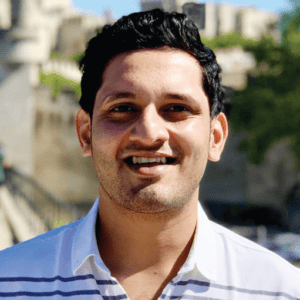
“Over the last decade, the pace and scale of tourism-driven development in Goa have accelerated at an unprecedented rate. What was once a destination celebrated for its laid-back charm and natural beauty is increasingly becoming a commercial hub catering to mass tourism. We have seen a surge in resorts, restaurants, and entertainment ventures – many of which prioritize short-term gains over long-term sustainability. This has led to overburdened infrastructure, strained water and power supplies, worsening waste management, and environmental degradation, especially in coastal areas.
Equally concerning is the erosion of local culture. Festivals, architecture, and traditions are being repackaged for tourist consumption, often losing their authenticity. Moreover, the economic benefits are disproportionately enjoyed by investors who may not add to Goa’s culture and societal priorities.
If Goa is to continue attracting quality visitors while preserving its natural and cultural heritage, we must integrate scientific assessments, planning frameworks, and community participation into every phase of its development.
In my view, the most critical policy reform the state government can implement is a carrying capacity-based zoning and tourism licensing framework. This would ensure that tourism growth is aligned with what the land, water systems, and communities can sustainably support.
Scientifically backed assessments that establish how many tourists each beach, village, or natural area can accommodate without degrading resources.
Second, tourism projects must be required to work in partnership with local communities – whether through employment, sourcing food and crafts, or promoting cultural events – so that the benefits are more widely shared and rooted in the local economy. This will also lead to an improvement in visitor experience quality as an authentic Goa identity is showcased as opposed to the state becoming a generic or a culturally diluted destination.
Third, licensing and taxation policies should incentivize sustainable practices and discourage ventures that harm the environment or contribute to overdevelopment. This approach balances economic development with cultural preservation and environmental protection. It is enforceable, equitable, and grounded in scientific understanding – qualities that are essential if Goa is to remain a cherished destination for generations to come.”
Responsible Tourism: Our Commitment to Goa’s Cultural and Economic Vitality
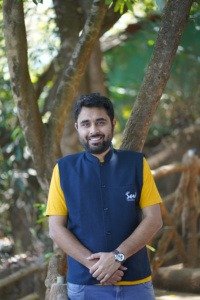
“As a key stakeholder in Goa’s tourism sector, we understand that our influence comes with a significant responsibility. Our core philosophy is that authentic experiences are the future of tourism, but they must be managed with care. All our experiences are curated and developed with the direct involvement of local communities. We work with local hosts and rely on their active feedback to ensure their sentiments are respected and their priorities are taken into account. This approach also ensures that the economic benefits of tourism, which have often bypassed local residents, are distributed more equitably.
We continuously seek guidance from tourism experts and academics who have presented papers on and worked in the field of sustainable and “intelligent” tourism. This collaboration ensures our initiatives are well-informed and designed for long-term sustainability.
Our young and passionate team is driven by a deep respect for Goan culture. Our curation team, responsible for developing new experiences, is trained to integrate community sentiments into every decision. We also carefully manage the number of people in our tours to prevent over-tourism.
One of our biggest challenges is bridging the gap between tourists’ expectations and the professional standards of our community hosts. We work tirelessly to communicate the importance of professionalism to our local partners, ensuring a smooth and respectful interaction. This requires continuous effort and a commitment to building strong relationships with the community. While we have seen significant progress, it remains an ongoing process.
From the government, we would appreciate support that is thoughtful and not just mechanical. Instead of replicating tourism models that have worked elsewhere, we urge them to understand the unique sentiment of Goa and develop tailored solutions. For example, rather than building unnecessary infrastructure, the government could support programs that help students pursuing tourism and hospitality courses. We have a MoU with 67 colleges across Goa to offer certification programs. Government support in a formal capacity–perhaps by getting stakeholders involved in these programs or offering official certifications to students–would go a long way in nurturing a new generation of tourism professionals and promoting a more sensitive, sustainable vision for Goa’s tourism industry.”
SUSTAINABLE AND TRANSPARENT TOURISM IN GOA

The Travel and Tourism Association of Goa (TTAG) is a strong advocate for integrating technology in tourism to ensure transparent pricing. While we were optimistic about the new guidelines for online aggregators, their implementation has been delayed.
We remain hopeful that the government will eventually adopt these regulations. In our commitment to creating a level playing field for local businesses, we have submitted information on unregistered businesses to the authorities and anticipate action will be taken.
We have also seen the government start to crack down on touting, another significant issue. Additionally, the Goa Police have been quite effective in tackling recent challenges like cyber scams and digital identity theft.
A core mission of TTAG is to ensure that the benefits of tourism are enjoyed by local businesses. In line with this goal, and in celebration of World Tourism Day on September 27, 2025, a series of events will showcase Goa’s unique culture.
The Department of Tourism, TTAG, Skal Goa, and various experience providers are collaborating to highlight authentic, local experiences. Leading up to the main event, we will host Goan cuisine cooking contests for students and home chefs at IHM Porvorim and IIHM Verna.
The celebrations will culminate on World Tourism Day with a focus on sustainable tourism, featuring the initiatives of Serafin Cota of Dona Sa Maria as a prime example.
The promotions will conclude on September 28, 2025, with a film festival showcasing short films about Goa.”
A call for heartfelt tourism: Preserving Goa’s culture
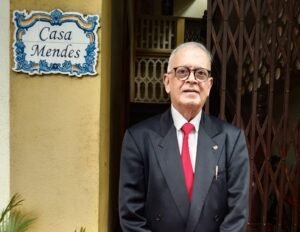
The rapid advancement of technology has profoundly reshaped the hospitality and aviation industries. While this progress has brought efficiency, it also presents a new challenge: preserving the authenticity of the travel experience. In the past, the travel fraternity prided itself on providing heartfelt experiences with a strong sense of integrity. I firmly believe this remains the most valuable asset Goa can offer.
For Goa, a state celebrated for its unique character and intimate scale, the greatest danger lies in over-commercialization. When tourism becomes a purely transactional business, it risks stripping away the very soul that draws visitors here. The pursuit of short-term economic gains often comes at the expense of our cultural and environmental integrity. Therefore, any policy aimed at ensuring the long-term sustainability of tourism must prioritize retaining this ‘heart.’
From my long-term perspective, the most critical policy change the state government can implement is to focus on preserving the traditional values of Goan village life. This means actively protecting our social fabric and ensuring that the economic benefits of tourism don’t come at the cost of cultural disruption. By fostering a tourism model that respects and integrates with our local communities, we can ensure that every visitor’s experience feels genuine and meaningful. We must move beyond simply managing tourist numbers and instead focus on nurturing an ecosystem where our heritage and environment are not just protected, but celebrated. This approach will not only sustain our tourism industry but also enrich the lives of both our residents and our guests for generations to come.”
Sustaining Goa’s Culinary Heritage Through Collaboration and Innovation
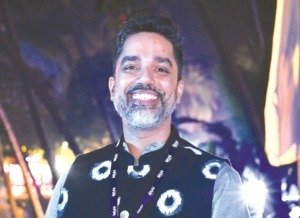
“Goan cuisine is central to our tourism identity, and sustainability is key to its future. This means sourcing fresh local produce, supporting farmers and fisher folk, cutting food waste, and educating diners about seasonal ingredients and mindful consumption. Goan food is not only about preserving traditional recipes, it can also evolve by blending global influences into a distinctive, contemporary style firmly rooted in local produce and community participation. Associations like the National Restaurant Association of India (NRAI) help drive this change by creating awareness, sharing best practices, and building meaningful collaborations across the industry. Beach shacks and informal vendors are an integral part of Goa’s charm, but they must also uphold food safety and quality standards to protect visitors and residents alike. The way forward is to build capacity rather than resort to harsh crackdowns.
At NRAI, we provide Food Safety Training and Certification (FoSTaC) training and certification to all our members absolutely free of charge, ensuring that essential knowledge, guidance, and compliance are accessible to everyone.
Our message to the authorities is simple: work with associations like ours to create practical, balanced frameworks that ensure safety without stifling entrepreneurship.
Goa’s culinary reputation depends on consistency, and together we can achieve that while preserving the vibrant informal culture that makes our state truly unique”





